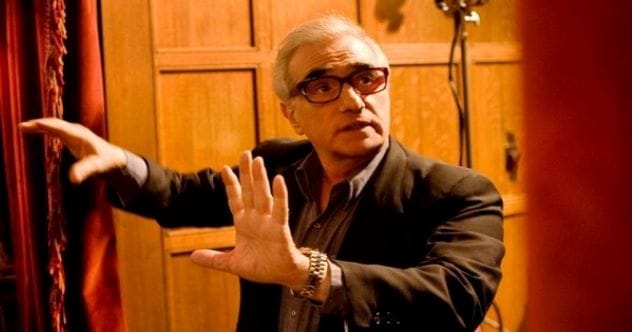Ever watched a movie and thought, “Wow, this feels like a [director’s name] film”? Some directors don’t just make movies; they craft worlds with a signature touch that’s unmistakable. It’s more than just a good film; it’s an experience stamped with their unique vision. Let’s dive into ten legendary directors whose incredible and distinctive styles have left a lasting mark on filmmaking.
Wes Anderson
Wes Anderson is like the master of beautifully odd movies. Think of films like The Royal Tenenbaums or Fantastic Mr. Fox. His movies often look like live-action storybooks. The stories might seem simple, but they are filled with amazing details. You’ll see fancy writing, detailed sets, and quirky characters who are often outcasts or just plain strange.
A big part of an Anderson film is how it looks. Characters like Royal Tenenbaum or Max Fischer from Rushmore are almost like cartoons of themselves. He uses special camera angles, stop-motion animation, and bold or soft colors to make things feel extra special. Anderson loves symmetry; many shots are perfectly balanced, making them look beautiful but also a bit unreal. For him, art often comes before the story. Top actors like Bill Murray and Anjelica Huston love working with him, making his films even better.
Oliver Stone
Oliver Stone is a powerful filmmaker, and some might say he’s a bit wild. But his bold way of making movies has given us some truly unforgettable films. Stone is at his best when he makes you question what you think you know, often hinting at dark secrets or wrongdoing by powerful groups.
Any Given Sunday, for example, looks like a movie about a pro football team. But underneath, it’s a sharp look at how violent sports can be seen as entertainment. Not all his big swings are hits; films like Alexander or World Trade Center didn’t quite capture the magic. However, two films really show Stone’s genius. JFK (1991) made many people rethink the Kennedy assassination. And his 1994 masterpiece, Natural Born Killers, powerfully showed how media can glorify violence. It makes us think about our own role in liking such stories.
Spike Lee
Spike Lee is one of the most famous African-American directors, known for films that celebrate Black culture and push for social justice. But he’s also an innovator. Lee invented a special camera shot called the “double dolly.”
A dolly is a cart that moves the camera smoothly. Lee’s double dolly moves both the camera and the actor. This makes the character look like they’re floating while the background moves past them. He uses this shot often to let a character share extra thoughts, or to show they’re feeling confused or out of sorts. It always makes the scene stand out. Lee isn’t afraid of controversial topics either. His film Malcolm X sparked debate, and he’s often tackled tough subjects head-on in his work.
Ken Burns
Ken Burns is a master of documentary filmmaking. While others might focus on one event, Burns takes on huge topics like the Civil War, World War II, or the history of jazz. His series are like deep, engaging college courses, often made up of many long episodes.
He uses old music, black and white photos, maps, and personal stories to bring history to life. A narrator guides you, and experts share their insights. For example, he made the complex Civil War understandable in about 11 hours. Burns also knows when a topic is too big to cover everything. For his WWII film, The War, he focused on the true stories of four Americans. He also updates his work. His Baseball series came out in 1994, but so much happened in the sport afterward that he added a “10th Inning” in 2010 to cover it.
David Zucker
David Zucker might not have made you laugh hard in a while, but he’s on this list for two big reasons. First, his comedy style is totally unique. Second, he wrote and directed two of the funniest movies ever: Airplane! (1980) and Naked Gun: From the Files of Police Squad! (1988).
His style is all about fast jokes. They come so quickly you barely have time to breathe between laughs. Zucker throws out tons of silly one-liners and physical comedy, and a surprising number of them are hilarious. Think of it like a boxer throwing lots of quick punches, then a big one that knocks you out with laughter. Memorable gags include an old lady speaking jive or a cop who picked the wrong week to quit smoking, drinking, and sniffing glue. Zucker also turned serious actor Leslie Nielsen into a comedy legend.
Quentin Tarantino
Does anyone do casual, over-the-top violence like Quentin Tarantino? It’s easy to think he’s just about the blood and guts, using shocking scenes to cover up other weaknesses. But Tarantino is special because his movies would be amazing even without the extreme violence.
This was clear from his first film, Reservoir Dogs (1992). Amidst a robbery gone wrong, torture, and a dying cop, Tarantino brilliantly develops his characters, who only use colors for names. The dialogue, pacing, and suspense are what make the movie great. Tarantino shines when his heroes have clear bad guys to fight and a mission. This lets the audience enjoy the wild violence without feeling guilty. In Inglorious Bastards, we cheer as Nazis are hunted. In Django Unchained, we root for Jamie Foxx as he fights his way through a plantation to save his wife.
Akira Kurosawa
Akira Kurosawa, over a career spanning nearly 60 years, became known as Japan’s greatest filmmaker and one of the best directors ever. He truly changed filmmaking, but his way of working was perhaps his most notable legacy. Simply put, he was tough to work with, from start to finish.
Kurosawa was a perfectionist. He took full control of scripts and expected a lot from his writers. During filming, actors and camera crews often had to do dozens of takes to get it right. In editing, he was his own harshest critic. As he became more famous, he worked with a select group of top talent known as “Kurosawa-gumi.” Being a demanding director allowed him to create and try new things. In the 1940s and 50s, his use of “axial cuts”—where the camera suddenly moves closer or further away—and screen wipes became common techniques. His 1954 film Seven Samurai, with its exciting action and underdog story, has inspired action movies for decades.
Martin Scorsese
Martin Scorsese loves exploring violent subcultures. He’s a master at taking us deep into gritty worlds where characters must be smart and tough to survive. Think of the mafia in Goodfellas and Casino, street life in Taxi Driver, boxing in Raging Bull, or old New York gangs in Gangs of New York.
Scorsese’s films are often very long, usually over two hours, and many are close to three. He frequently uses voiceovers from his main characters to give context, which actually helps speed things up. Without them, his movies might be too long for theaters. When he made The Irishman for Netflix in 2019, he wasn’t limited by time, and the result was a three-and-a-half-hour epic. Scorsese also has favorite actors, like Robert De Niro and Leonardo DiCaprio. DiCaprio starred in The Departed, which finally won Scorsese an Oscar for Best Director.
Alfred Hitchcock
Alfred Hitchcock is the only director on this list who is undeniably the best in his genre: horror. He was nominated five times for the Best Director Oscar. Every other horror filmmaker is essentially competing for second place.
Hitchcock was known as the “Master of Suspense,” and he truly earned that title. His clever pacing created níveis of tension never seen before, not just in horror but in other types of films too. He understood that being scared is more about what’s in your head than what you see. The thought of something terrible happening is often scarier than the event itself. It’s interesting that Hitchcock made his best films without today’s fancy special effects. This forced him to be creative. He had to scare audiences without gruesome monsters or tons of blood, especially since gore wasn’t as accepted then (and blood isn’t as scary in black-and-white). A great example is Miriam’s death in Strangers on a Train (1951), which uses techniques still seen in horror movies today.
Stanley Kubrick
Many people, myself included, think Stanley Kubrick is the greatest filmmaker of all time. It’s hard to pin down his style because he was so versatile. Instead, let’s look at a common theme in his work: a deep skepticism about humanity. Many of his films warn us that our own pride and mistakes are our biggest threat.
Consider 2001: A Space Odyssey (1968). Made during the space race, it shows the dark side of trying to outdo others: creating artificial intelligence so smart that humans can’t control it. Kubrick also didn’t trust us with nuclear weapons, as seen in Dr. Strangelove (1964). He suggested that one paranoid general could accidentally destroy the world. Films like A Clockwork Orange, Full Metal Jacket, and The Shining further prove his genius. It’s easy to argue that Kubrick directed five or more of the best 20 or 25 movies ever made.
These ten directors, each with their own unmistakable style, haven’t just made movies; they’ve shaped the art of filmmaking itself. Their unique visions continue to inspire and captivate audiences worldwide.
Which of these directors is your favorite, or is there another director with a distinctive style you love? Leave your comment below!










